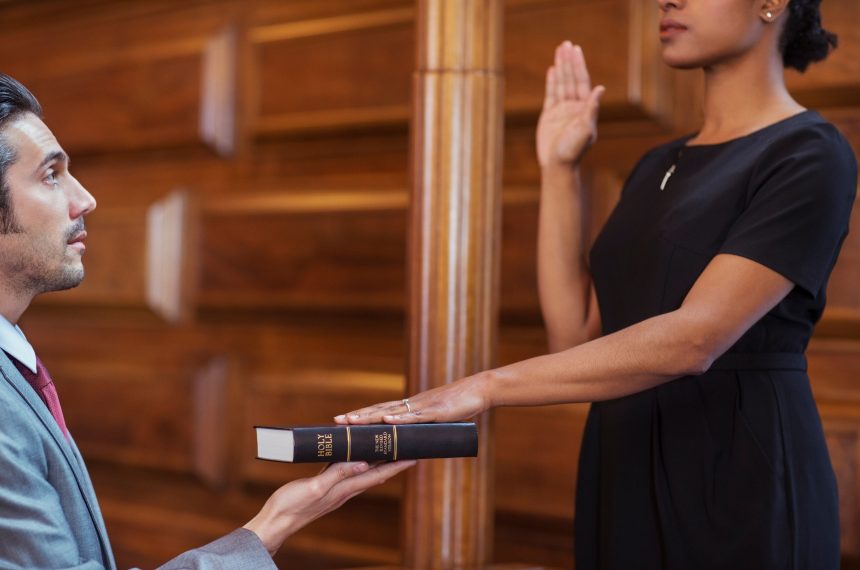Happy To Discuss About Your Requirement? Get a Quote

This article delves into the vital role of expert witnesses in legal proceedings, elucidating their qualifications, responsibilities, and ethical considerations. From selection to testimony, it offers valuable insights for legal professionals and curious minds alike.
Expert witnesses, possessing specialized knowledge, offer expert opinions in legal matters, notably in personal injury or medical cases. They aid courts in comprehending intricate technicalities beyond typical understanding, spanning fields like engineering and medicine. Their insights are pivotal in assessing testimonies and determining liability or causation, which is crucial in cases demanding specialized expertise.
Expert witnesses are integral in legal cases. They offer expert opinions, testify in trials, and aid in substantiating claims. They simplify complex technical information for judges and juries, analyze evidence, and provide professional insights. Subject to cross-examination, they assist attorneys in case preparation, offering industry expertise to support legal strategies.
Expert witnesses are prevalent in various cases, from financial disputes that require consulting experts to medical malpractice suits that require testifying experts.
Consulting experts offer insights into financial disputes, aiding in navigating complexities and presenting evidence effectively.
Testifying experts elucidate technical information to judges and juries, impacting case outcomes significantly.
Expert witnesses must possess extensive expertise, credibility, and trustworthiness and a profound understanding of liability and causation in complex legal matters.
They play a pivotal role in legal proceedings, offering specialized knowledge to aid informed decisions. Practical experience complements theoretical knowledge, enhancing their effectiveness.
Establishing trust with all involved parties is vital for effective communication. This trust stems from qualifications, experience, and a history of impartial testimony.
Expert witnesses are responsible for providing expert testimony, advocating for their findings, and demonstrating the financial significance of their opinions in legal proceedings.
They play a crucial role by utilizing their specialized knowledge to offer insights into complex issues and educate courts and juries on technical matters.
Expert witnesses serve as advocates, confidently presenting and defending their conclusions during cross-examination, influencing case outcomes.
They showcase their insights’ financial merit, quantifying their expertise’s impact to illustrate the tangible benefits for involved parties.
Expert witnesses are instrumental in the pre-trial phase, providing consultation, analyzing documents, and offering expert input to support case strategy.
They meticulously review evidence, ensuring accuracy and reliability, and offer valuable insights through specialized knowledge crucial for influencing case outcomes.
Expert witnesses also consult with legal teams and clients, clarifying technical concepts and providing guidance on case strengths and weaknesses, ensuring comprehensive understanding among all parties involved.
Expert witnesses deliver crucial testimony throughout the trial, offering insights and opinions to bolster the legal team’s case.
They play a vital role in simplifying complex information for the jury, acting as intermediaries between technical details and juror comprehension while building rapport and trust.
Expert witnesses must be concise, clear, and compelling in their testimony, ensuring their insights resonate with the jury and leave a lasting impact.
After the trial, expert witnesses contribute to settling financial disputes by providing insight into damages and aiding in post-trial matters.
Their specialized knowledge accurately quantifies damages, guiding parties toward fair resolutions and clarifying complex disputes.
With experience and expertise, they streamline negotiations, present evidence effectively, and enhance credibility in the resolution process.
Expert witnesses offer a strategic advantage in legal cases, leveraging their expertise to impact outcomes significantly.
Their factual and technical analysis clarifies complex issues for the court and jury, breaking down concepts into understandable terms.
Beyond typical witnesses, they bring authority and credibility, enhancing the persuasiveness of legal arguments and potentially tipping decisions in favor of supported parties.
Expert witnesses offer critical evidence and testimony, supporting legal arguments in court with expert opinions.
Selected through a rigorous process, they are authorities in their fields, possessing a deep understanding of complex areas.
On the stand, they convey opinions clearly for judges and jurors to comprehend, lending credibility to legal arguments.
Expert witnesses decode complex technical or scientific issues, clarifying intricacies and establishing causation in challenging legal matters.
They are crucial in simplifying terminology for non-experts, potentially influencing case outcomes. Expertise aids in attributing outcomes to actions or circumstances, providing concrete evidence and logical reasoning.
Their depth of knowledge strengthens legal arguments, offering technical credibility as the backbone of the case.
Expert witnesses encounter challenges like maintaining credibility, delivering testimony effectively, and navigating legal procedures.
Establishing credibility involves scrutiny of qualifications and objectivity while delivering clear and accurate testimony to a diverse audience, which poses communication challenges.
Navigating legal procedures, from understanding evidence rules to handling cross-examination, requires precision and poise in the courtroom.
Selecting and vetting expert witnesses involves a rigorous process to ensure their expertise, credibility, and trustworthiness align with the legal case.
Expertise is paramount, requiring examination of qualifications, experience, and proficiency. Background, education, and previous cases determine knowledge and skill.
Credibility hinges on reputation, consistency, and communication clarity. The absence of conflicts or biases strengthens credibility.
Trustworthiness relies on integrity, reliability, and ethical standards. Track record and impartiality contribute to a solid foundation of credibility and trust.
Expert witnesses uphold strict ethical standards, ensuring impartiality, honesty, and integrity throughout legal proceedings.
Impartiality maintains neutrality and objectivity, avoiding bias or personal interest in expert opinions.
Honesty entails providing accurate, truthful information without withholding relevant details.
Integrity demands ethical conduct, upholding moral principles, and professional standards to maintain trust in expertise.
Expert witnesses significantly influence legal cases, shaping understanding and resolution of complex matters.
They elucidate technical details and scientific data, providing deep insights into subjects from forensic evidence to medical procedures.
Their testimonies enhance credibility, offering expert analysis and interpretations that sway opinions and contribute to the resolution of cases.
© 2024, Alpha Law Group